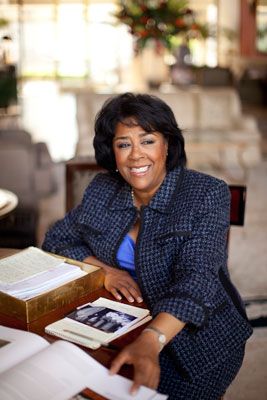Some minority L.A. Dems realize unions are dubious allies
March 12, 2013
By Chris Reed
The hegemony of Democrats in California is based to a striking degree on the ability of public employee unions — whose leaders and most affluent members are predominantly white — to keep minorities on board even though “social justice” means sharply different things to teachers union members and to most Latinos, African-Americans and Asian-Americans.
This task is made easier by many Republicans, whose views on immigration and English-only policies and whose nostalgia about the way California used to be can easily be depicted as nativist fear of the other. Even as Democratic stewardship of the state’s economy has created the longest sustained unemployment in 70 years, the GOP’s horrible image has insulated Democrats from losing minority votes.
That’s the bad news. The good news is that at least some minority politicians are beginning to figure out that a party primarily devoted to preserving the jobs, automatic pay hikes and generous pensions of public employees is a party that’s not necessarily interested in what’s best for minorities.
 African-American Councilwoman warns about union power
African-American Councilwoman warns about union power
The latest is Los Angeles City Councilwoman Jan Perry, an African-American progressive who pushes for green regulations and nanny-state causes but is also a budget hawk.
Perry lost last week’s mayoral primary after a campaign in which she criticized the other two Democratic candidates — L.A. Councilman Eric Garcetti and L.A. Controller Wendy Greuel, who are both white — for their subservience to labor. Garcetti has tight ties with the SEIU; Greuel works closely with the police and fire unions. In a weekend interview with the Los Angeles Times, Perry offered a distinctly Republican-sounding critique of the effects that raw union power and union-bankrolled candidates have on local government:
“Voters ‘need to examine what that will mean to them,’ Perry said. ‘They should look at where the money in this campaign comes from and think about if they want to have greater control of their public utility, for instance. Otherwise, if they don’t pay attention, they will be completely rolled over.
“‘Because that is what is at risk here, at great risk,’ she continued. Having someone too closely allied with employee unions in the mayor’s office could mean ‘the death of independent politics altogether. It could mean the only way you get elected in this town is if you get money from unions.'”
 Poor schools for Latinos defined as civil-rights issue
Poor schools for Latinos defined as civil-rights issue
Preceding Perry in realizing that union interests are often inimical to minorities’ interests was another Los Angeles Democrat, Gloria Romero, herself a former union member when she worked as a college professor.
As state senator, Romero saw teachers unions sabotage reforms over and over again and fight relentlessly for policies that put veteran teachers at the safest, whitest schools and put the least experienced teachers at the poorest schools — often teachers who taught classes for which they didn’t even have the proper credentials. Romero lost so many battles — and saw so many Latino kids failed by L.A. Unified — that she ended up dropping a bomb, likening the fight to improve poor schools to a battle over civil rights.
For her candor, Romero was rewarded with a vicious California Teachers Association attack campaign that depicted her as “dangerous” and killed her 2010 bid to be superintendent of public instruction. The CTA’s choice, Tom Torlakson, has been just what the CTA wanted and just what reformers feared: a guardian of the status quo, right down to sticking up for school districts using 30-year borrowing on basic supplies and equipment so as to free up operating budget funds for teacher compensation.
Now Gov. Jerry Brown has essentially put all Latino elected officials in the Legislature and on local school boards on the spot by proposing a dramatic change in school funding policies to give more money to schools with most students with lagging language skills.
Brown says it is crucial to the future of California that these students, often Latinos, graduate high school with solid job skills.
 Gov. Brown to Latino lawmakers: Whose side are you on?
Gov. Brown to Latino lawmakers: Whose side are you on?
This is not going to be an issue that Assembly Speaker John Perez — heretofore a CTA and CFT bosom buddy — necessarily can finesse. If the teacher unions try to kill Brown’s plan so as to maintain a funding status quo designed to create the most comfort for veteran teachers, Perez will have to take a stand.
Does he care most about keeping the teacher unions happy? Or about the hundreds of thousands of Latino schoolkids whom Brown hopes to help?
We shall see. But here’s hoping that not just Romero, but the state media in general, frames this issue as it should be framed: Just what do elected California Democrats define as “social justice”?
Helping teacher unions?
Or helping disadvantaged Latino students?
This could be the defining moment that California politics has badly needed since public employee union power metastasized after Gov. Pete Wilson left office in 1999.
Related Articles
Housekeeping Problems
Katy Grimes: The poster child of ambulance-chasing, fame-seeking lawyers, has done it again. Attorney Gloria Allred (of Amber Frey and
Activists Gear Up to Stop Tax Increase
MARCH 21, 2011 By JOHN SEILER Opponents of Gov. Jerry Brown’s proposed $12 billion tax increase already are spoiling for
Nobody Wants Cal Bonds
John Seiler: Bonds. California bonds. Nobody wants them. Gov. Arnold Schwarzenegger has extended his seven years of destruction by wiping


